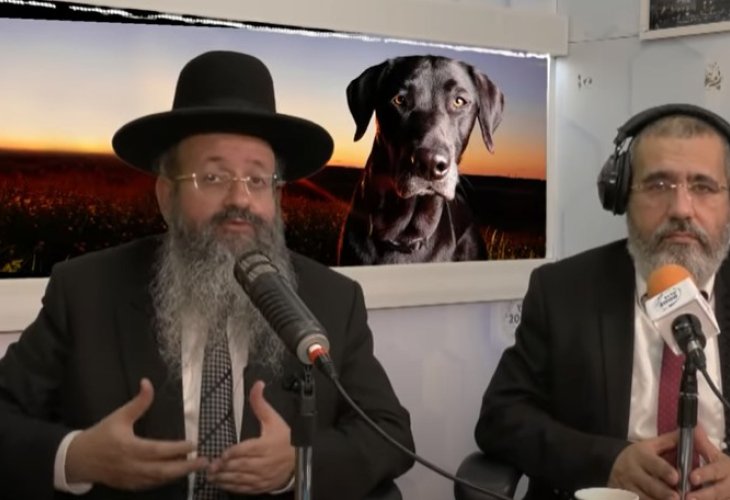Exploring Mystical Questions from the Talmud
Dive into fascinating daily Talmud discussions with topics like the righteous facing adversity, soul reincarnation, saying Kaddish for a non-Jewish parent, and the next world for non-Jews.

Tractate Sanhedrin, Page 105a, 'He is Beor, he is Cushan Rishathaim, he is Laban the Aramean'.
The Intrigue of Soul Reincarnation
From ancient times, the concept of soul reincarnation, linked to Kabbalah, has captivated people from all walks of life. Rabbi Levi ben Habib notes, 'Due to my sins, I have not yet merited to understand this wisdom, as it's not given for one to comprehend it on their own; instead, it must be received from a teacher in the tradition'. He describes various opinions on this topic and concludes: 'There is a significant group of Jewish scholars who believe in this as a fundamental aspect of the Torah we must accept without doubt'.
Why Do the Righteous Suffer? The Ramban, commenting on the Book of Job, hints that the mystery of 'the righteous who suffer' may lie in previous incarnations affecting one's current life.
The Journey of a Soul: Our Talmudic discussion provides compelling evidence for the idea of reincarnation. It states: 'He is Beor, he is Cushan Rishathaim, he is Laban the Aramean'. Laban, ancestor of Balaam and Cushan Rishathaim, is actually the same person with different roles over time. Was it possible for Jacob's father-in-law to live until the time of the Judges? No, explain commentators, rather Laban's soul reincarnated in Beor and Cushan Rishathaim.
As Generations Pass: Rabbi Yosef Chaim, in his book 'Torah for its Own Sake', cites Solomon's words—'a generation comes and a generation goes'. The implication was that souls reincarnate from the previous generation, thus one departs and through reincarnations, the next arrives.
Rabbi Yosef's insights also touch upon why King Solomon ruled over the entire world, whereas his father David only over the Israelites. Until Solomon's time, souls remained singular in the Jewish people, but afterwards, souls started reincarnating into non-Jews and even animals and plants. Since Solomon was promised rulership over all of Israel, his dominion extended worldwide to encompass all reincarnated souls.
Withholding the "Hagomel" Blessing Due to Reincarnation Concerns: An interesting halachic implication arises from reincarnation teachings. Rabbi Meir ben Baruch of Rothenburg ruled that a father should not recite 'Hagomel' after his child's recovery because the child's suffering could be due to a previous incarnation, making the father exempt from this blessing.
A Baby Who Recited "Shema Israel": We end with a poignant story from the Steipler Gaon about Rabbi Avraham Abba of Modena. Initially doubting reincarnation, he was moved when a six-month-old child recited "Shema Israel" on his deathbed, uttering "One" as he passed.
Page 105a, "Balaam did not come to the next world yet other nations did".
Do Non-Jews Have a Share in the World to Come?
Our Talmudic discussion presents a debate among the sages about whether non-Jews have a share in the world to come. Rabbi Eliezer argues they do not, while Rabbi Yehoshua claims they do, and the law follows Rabbi Yehoshua.
When a non-Jew seeks conversion, the court informs him about the prohibitions upon Jews, and the rewards awaiting observant Jews in the world to come, asserting: "Know that the world to come is reserved for the righteous, who are Israel". This seems to imply that only Jews merit the world to come! However, in "Laws of Kings", Maimonides states: "Anyone who observes the seven Noahide laws and is careful in doing so is among the righteous of the nations and has a share in the world to come". So, do they, or don’t they, have a share?
The Righteous of the Nations: Scholars debate this, including the author of "Tiferet Yisrael", who explains that while all Jews, righteous or not, naturally have a share in the world to come, non-Jews must earn it through righteousness.Reciting Kaddish for a Non-Jewish Parent: This debate leads to intriguing halachic outcomes. Should a convert say "Kaddish" for a non-Jewish parent? The "Zaken Aharon" understands that by saying Kaddish, the child benefits the non-Jewish soul, assuming non-Jews indeed have a share in the world to come.
Accompanying a Non-Jew to Burial: The "Kol Bo" states that one must stand and show respect at any funeral, even of a non-Jew. The "Beit Yosef" clarifies that this applies only to righteous non-Jews, acknowledging their share in the world to come, thus deserving of posthumous respect. Rabbi Moses Schick warns to avoid funerals involving idol worship, making sure no such symbols are present not to honor idolatry.
Rabbi Yosef Rozin, known as "the Rogatchover", offers a complex explanation comparing the acquisition of the world to come to purchasing property, underscoring the distinction between how Jews and non-Jews claim their share. While Jews naturally hold a timeless share, non-Jews need a "purchase" of deeds to secure their place.
Thus, the world to come belongs traditionally to Israel, but through righteous acts, non-Jews can also secure their part.

